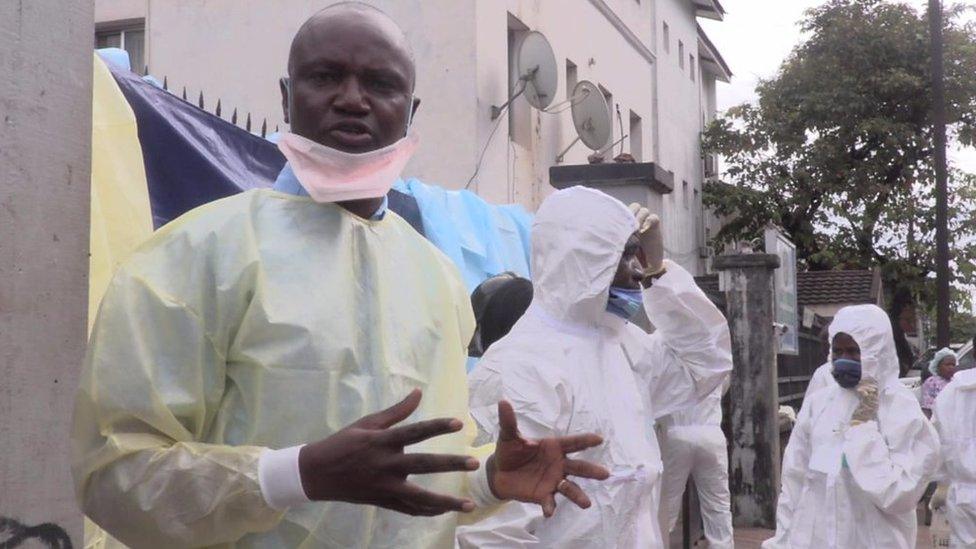Sierra Leone mudslides: UK team races to stop disease
- Published
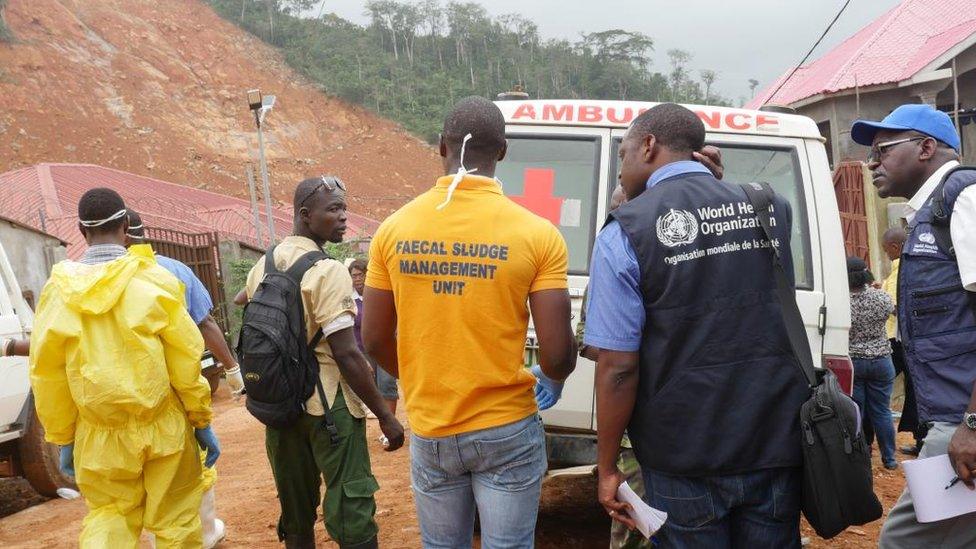
The relief team visits the site of the fatal mudslide
As families desperately clawed through red earth and debris that had buried their communities within just a few hours, another fear was already taking hold.
Gushing muddy waters had poured into poor communities, killing at least 500 people, leaving many more homeless and wrecking what were already very basic water and sanitation systems.
Although tragedy has already struck, things could get a lot worse.
"The floods and landslides have caused damage to water and sanitation systems in affected areas thus resulting in contamination of open water sources, and also created possible breeding sites for vectors like mosquitoes," World Health Organization Sierra Leone officer in charge, Dr Alexander Chimbaru, said.
Large displaced populations, limited clean water supplies and no or unhygienic places to go to the toilet, all create the perfect conditions for deadly diseases to spread fast.
Within four days of the disaster, the Sierra Leonean government had called on the new UK Public Health Rapid Support Team (UK-PHRST) to deploy to Freetown and help them prevent a major outbreak of disease.
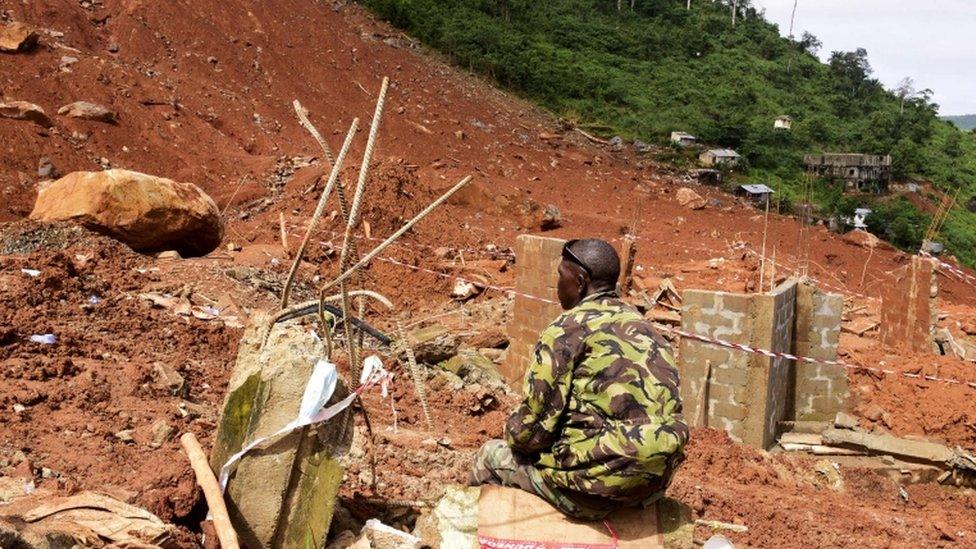
A soldier surveys the carnage
The team is made up of top experts, who commit to jumping on a plane within hours of a disaster anywhere in the world.
It was created in response to the world's tardy reaction to the Ebola outbreak in West Africa.
Little did the team know that one of its first deployments would be back to one of the worst Ebola-hit countries.
"We got the call on 18 August, and I was on a plane within three days," said epidemiologist Maria Saavedra-Campos.
"It's unfortunate we need to come back again in these circumstances. But it's clear how resilient Sierra Leoneans are."
Stalking deadly diseases
The UK team consists of:
two epidemiologists, who track diseases
two microbiologists, who can diagnose the cause of outbreaks
a logistician to coordinate the nuts and bolts of the project
Their job - in short - is to help local governments stop major outbreaks before they start.
"We are part of an additional level of surveillance of disease that the government put in place after this disaster struck. We do active case finding" said Ms Saavedra-Campos.
"We are looking for what we call 'epidemic prone' diseases, such as cholera, measles, malaria and typhoid."
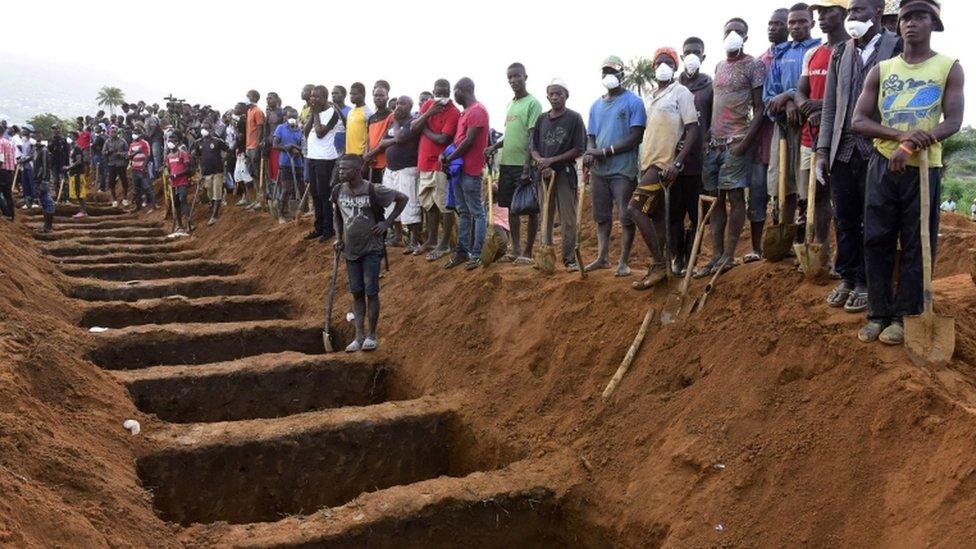
Many have died in tragedy
Every day, the team goes into community health centres in and around the worst affected areas and helps local health workers to build the systems needed to gather detailed information about illnesses in local areas.
For example, how many people reported having diarrhoea or a fever in the community that day, what medication or other intervention were they given.
Gathering this information on a daily basis helps build a better picture of whether there may be small clusters of disease that could be the beginnings of a major outbreak.
The idea is any potential epidemic is picked up super-early, so it can be stamped out before it spirals into a national or even international emergency.
"Many of these health workers have themselves lost loved ones in the mudslides," said Ms Saavedra-Campos.
"It is a difficult situation, and we are asking them to report every morning while some of them are still grieving. "
"We try to make it easy as possible by visiting them often and having a presence.
"Government teams and NGOs [non-governmental organisations] also do similar visits."
Preventing an emergency
The World Health Organization says the loss of life in Sierra Leone has been devastating, both after Ebola and this recent disaster, and the recovery will again take time.
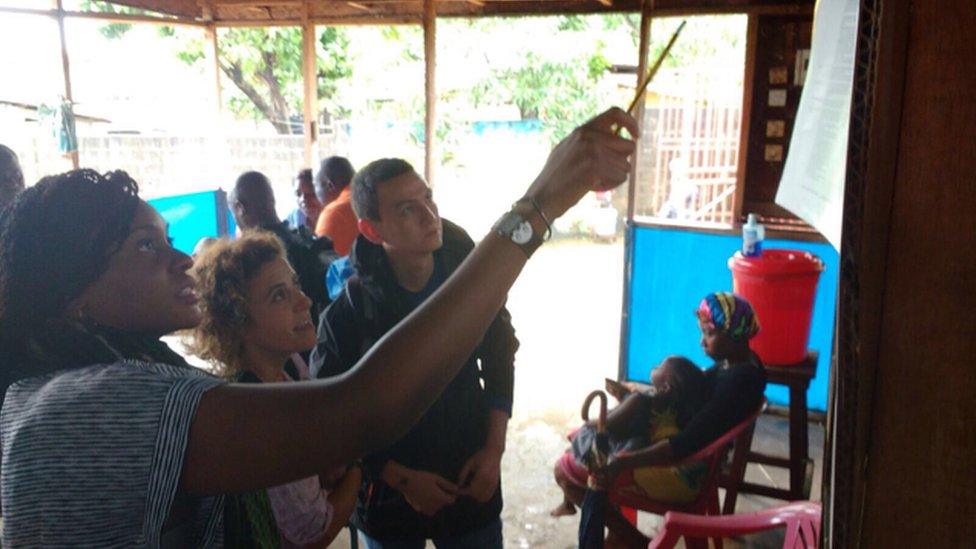
Maria Saavedra-Campos is assessing the best way forward
"This was an unanticipated tragedy which resulted in sudden loss of life and property and is hugely traumatic," said Dr Alexander Chimbaru.
"People here are incredibly brave and resilient, but we should not underestimate the effects an incident like this can have on people's mental health and wellbeing."
UK-PHRST is funded by the British government, which believes getting involved in such relief efforts abroad is money well spent.
"Diseases can spread rapidly around the world," said Ms Saavedra-Campos.
"We can travel to the other side of the globe in less than a day, diseases don't care about borders - we've seen that here in Sierra Leone with Ebola.
"If we can detect diseases early and tackle them at source, they won't spread to neighbouring countries or internationally - including to the UK."

UK Public Health Rapid Support Team:
public health experts, scientists, academics and clinicians on standby at all times
ready to deploy anywhere in the world within 48 hours
jointly run by Public Health England and London School of Hygiene & Tropical Medicine
can be deployed by the UK government after a request from low- and middle-income countries
£20m made available by UK government to fund this initiative over five years

- Published23 August 2017
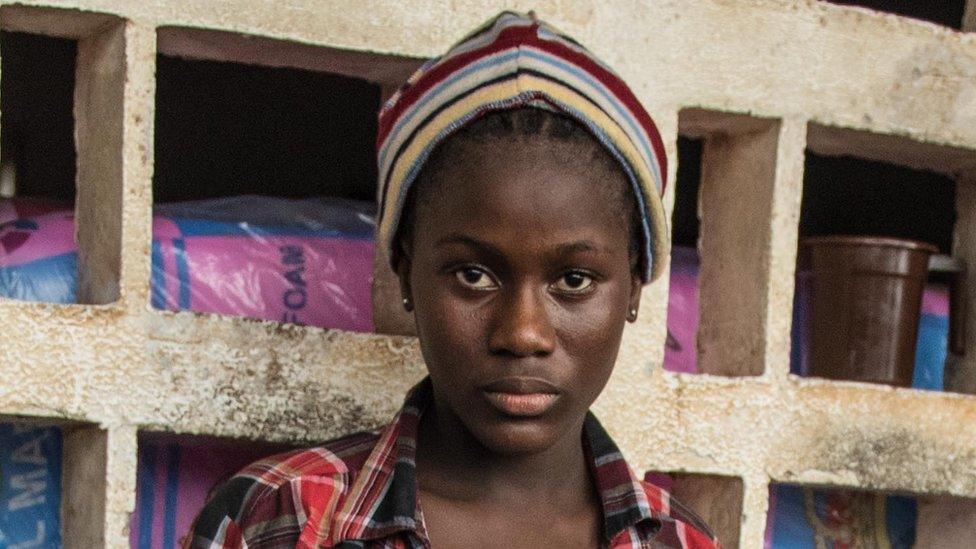
- Published19 August 2017
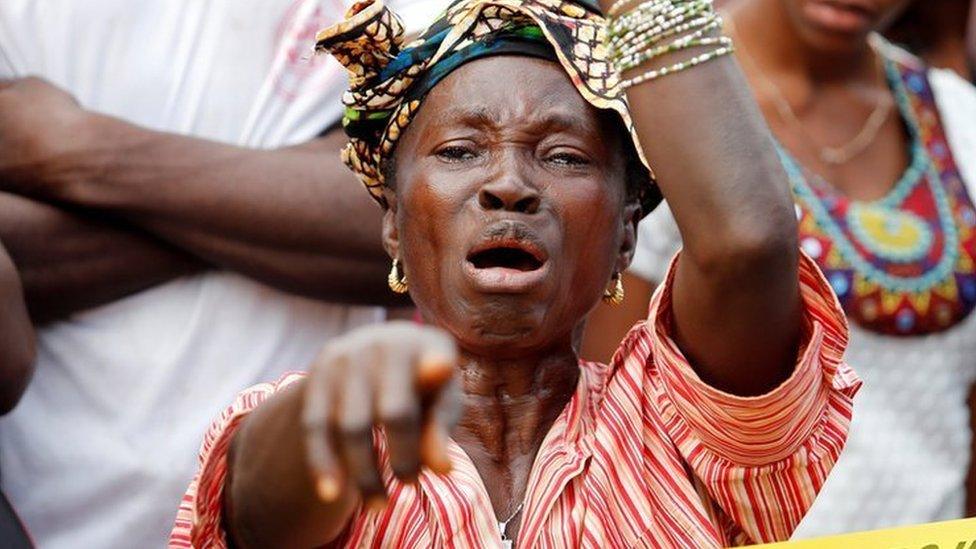
- Published17 August 2017
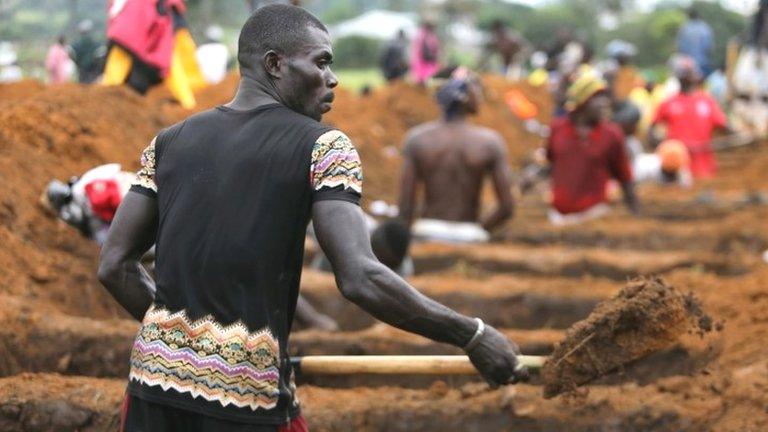
- Published15 August 2017
